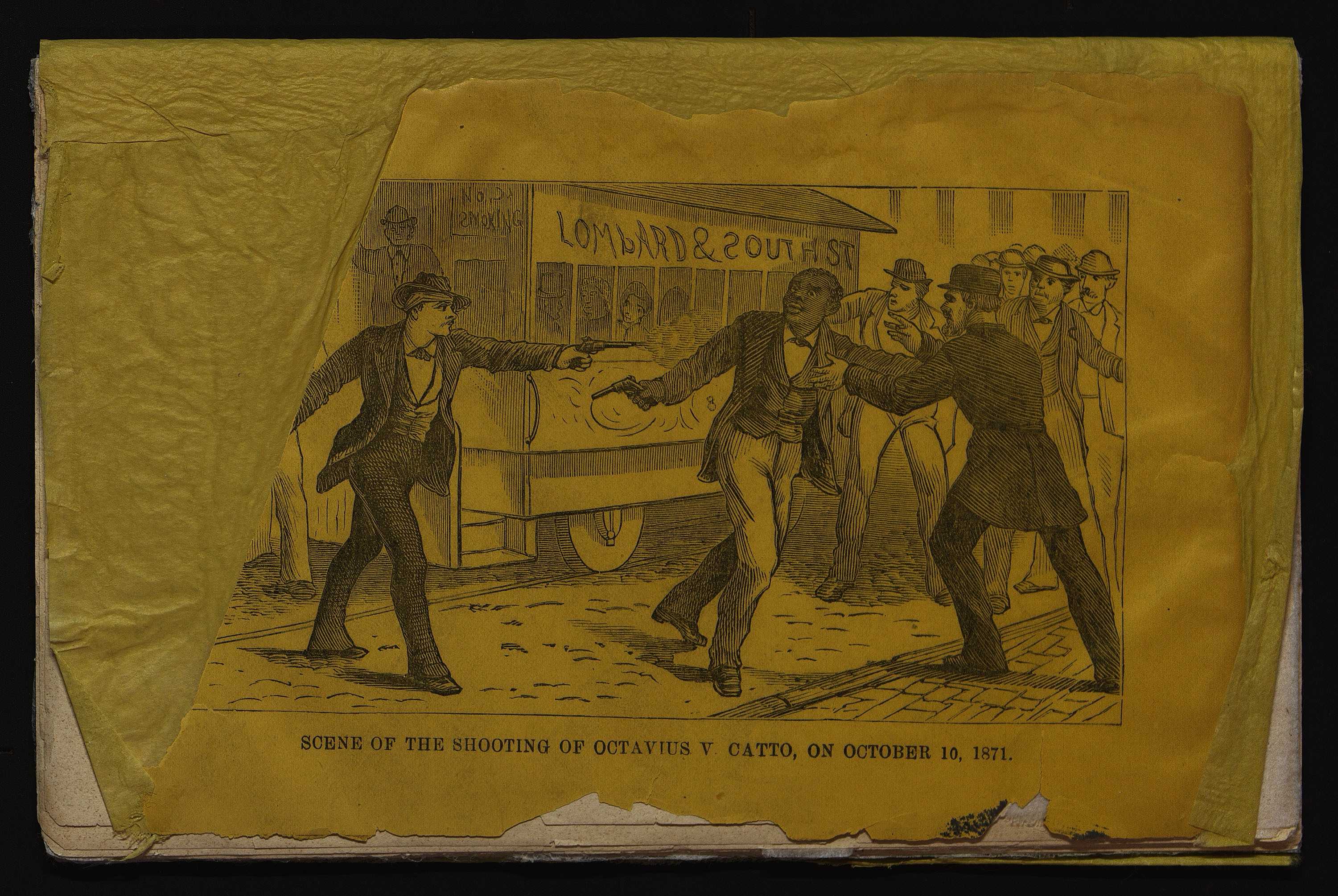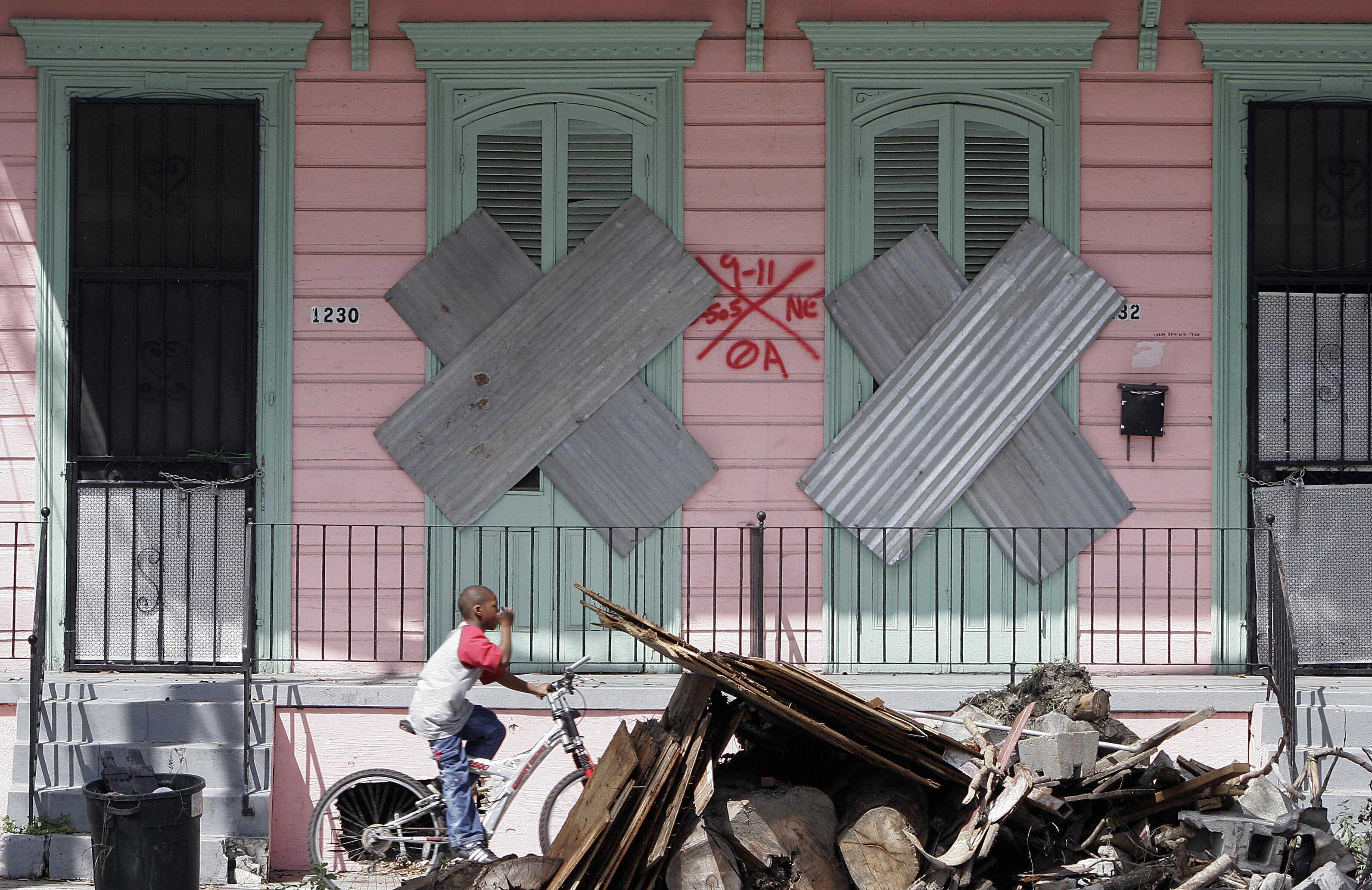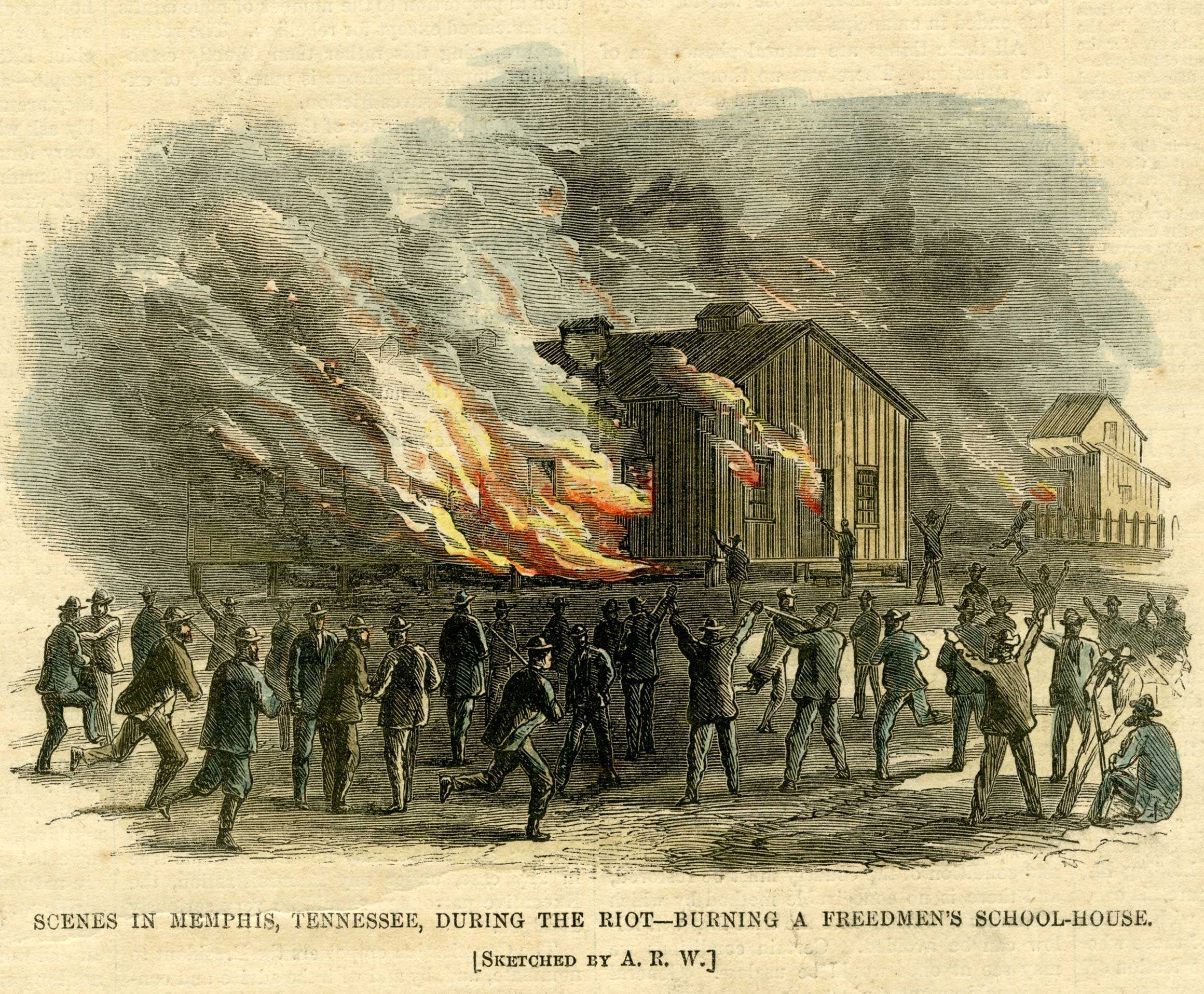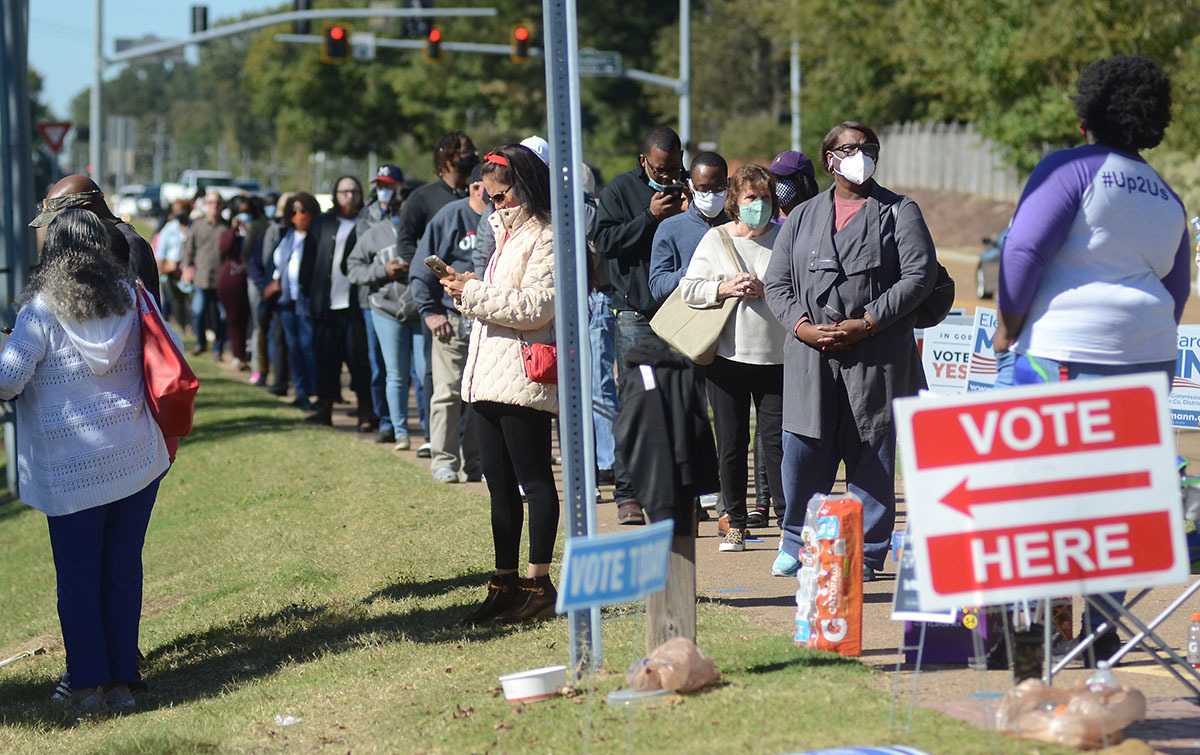Biography
Octavius Catto

Octavius Valentine Catto
Octavius Valentine Catto
Octavius Valentine Catto (1839-1871) was an American educator, intellectual, and civil rights activist. Born in Charleston, South Carolina, he moved with his family to Philadelphia, where his father became the pastor of First African Presbyterian Church. Catto graduated as valedictorian from the Institute for Colored Youth (now Cheyney University) in 1858. After further studies in Washington, D. C. he returned to the Institute to teach Greek, Latin, literature, and mathematics.
We shall never rest at ease, but will agitate and work, by our means and by our influence, in court and out of court, asking aid of the press, calling upon Christians to vindicate their Christianity, and the members of the law to assert the principles of the profession by granting us justice and right, until these invidious and unjust usages shall have ceased.
Octavius Catto
Fighting Segregation
‘Negro Expulsion from Railway Car, Philadelphia,’ The Illustrated London News, 1856
As a member of the Pennsylvania chapter of the Equal Rights League, Octavius Catto challenged the discrimination and violence experienced by Black passengers on Philadelphia's segregated streetcars. Frequently thrown off or forced to ride outside, African Americans received unequal treatment despite paying the same fare as white riders.
In 1865, Catto boarded a streetcar and refused to leave. His protest brought national attention to the unequal treatment faced by African Americans in free states. In 1867, after years of petitions and protests by Catto and other civil rights activists, Pennsylvania passed a law prohibiting railway companies from excluding or segregating Black passengers.
Murdered on Election Day
Scene depicting the shooting of Octavius Catto on October 10, 1871
Octavius Catto was murdered on Election Day in 1871 when groups of Irish immigrants sought to prevent Black men from voting. The recently passed 15th Amendment had given African American men the right to vote, and Catto was on the way to the polls when he was shot near his home by Frank Kelly. His funeral procession down Broad Street to Lebanon Cemetery was viewed by more than five thousand people. After fleeing to Chicago, Kelly was extradited back to Philadelphia six years later and put on trial. Despite testimony from both Black and white witnesses, he was acquitted.
Honoring Octavius Catto
Octavius Catto Memorial in Philadelphia, 2017
In 2017, nearly 150 years after his assassination, the city of Philadelphia unveiled a statue near City Hall in honor of Octavius Valentine Catto. It was the first public statue honoring a Black American on public land in Philadelphia.


